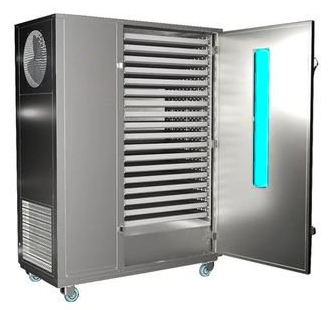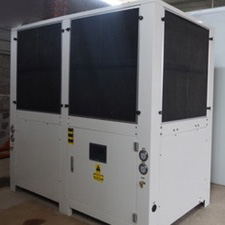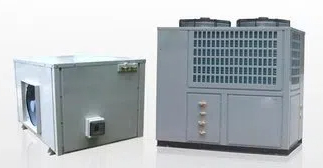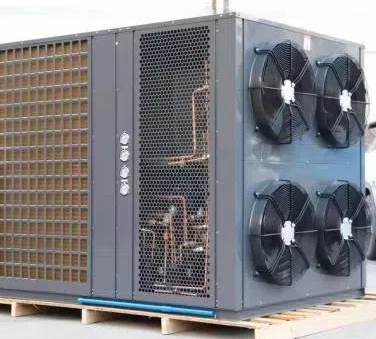
Content Menu
● Is A Heat Pump Dryer Better Than A Condenser Dryer?
● Understanding Heat Pump Dryers
● Advantages of Heat Pump Dryers
● Disadvantages of Heat Pump Dryers
● Understanding Condenser Dryers
● Advantages of Condenser Dryers
● Disadvantages of Condenser Dryers
● Performance Comparison
● Cost Considerations
● Environmental Impact
● User Preferences
● Conclusion
● Related Questions and Answers
>> 1. What is the main difference between a heat pump dryer and a condenser dryer?
>> 2. Are heat pump dryers worth the investment?
>> 3. Can I install a heat pump dryer anywhere in my home?
>> 4. How often do I need to maintain a heat pump dryer?
>> 5. Which dryer is better for delicate fabrics?
Is A Heat Pump Dryer Better Than A Condenser Dryer?
When it comes to choosing a dryer for your home, the decision often boils down to two popular options: heat pump dryers and condenser dryers. Each type has its unique features, advantages, and disadvantages. This article will explore these two types of dryers in detail, helping you determine which one might be the best fit for your laundry needs.

Understanding Heat Pump Dryers
Heat pump dryers are a modern innovation in laundry technology. They work by using a heat pump to recycle hot air, which makes them highly energy-efficient. Instead of venting hot air outside, these dryers extract moisture from clothes and then recirculate the warm air back into the drum. This process not only saves energy but also reduces the overall drying time compared to traditional dryers.
Advantages of Heat Pump Dryers
1. Energy Efficiency: Heat pump dryers use significantly less energy than condenser dryers. They can save you money on your electricity bills over time, making them a more economical choice in the long run.
2. Gentler on Clothes: The lower drying temperatures used in heat pump dryers are less harsh on fabrics, which can help extend the life of your clothing.
3. No Venting Required: Since heat pump dryers do not expel hot air, they can be installed in various locations without the need for external venting.
4. Environmentally Friendly: By using less energy, heat pump dryers are a more sustainable option, contributing to lower carbon emissions.
Disadvantages of Heat Pump Dryers
1. Longer Drying Times: While they are energy-efficient, heat pump dryers typically take longer to dry clothes compared to condenser dryers. This can be a drawback for those who need quick drying solutions.
2. Higher Initial Cost: The upfront cost of heat pump dryers is generally higher than that of condenser dryers. However, this can be offset by the savings on energy bills over time.
3. Maintenance: Heat pump dryers require regular maintenance to ensure optimal performance, including cleaning the heat exchanger and emptying the water tank.
Understanding Condenser Dryers
Condenser dryers operate by heating air and passing it through the clothes. The warm, moist air is then cooled, causing the moisture to condense into water, which is collected in a tank. This type of dryer is popular for its efficiency and speed.

Advantages of Condenser Dryers
1. Faster Drying Times: Condenser dryers generally dry clothes faster than heat pump dryers due to their higher operating temperatures.
2. Lower Initial Cost: They are usually less expensive to purchase than heat pump dryers, making them a more accessible option for many households.
3. Ease of Use: Many models come with user-friendly features and settings, making them easy to operate.
Disadvantages of Condenser Dryers
1. Higher Energy Consumption: Condenser dryers consume more energy than heat pump dryers, which can lead to higher electricity bills over time.
2. Heat Generation: They can generate a significant amount of heat, which may not be ideal for smaller spaces.
3. Potential for Overdrying: The higher temperatures can sometimes lead to overdrying, which can damage delicate fabrics.
Performance Comparison
When comparing the performance of heat pump dryers and condenser dryers, several factors come into play:
1. Drying Efficiency: Heat pump dryers are more energy-efficient, while condenser dryers tend to dry clothes faster.
2. Fabric Care: Heat pump dryers are gentler on clothes, making them suitable for delicate fabrics.
3. Cost of Operation: Over time, heat pump dryers can save you more money due to their lower energy consumption.
Cost Considerations
The initial cost of a dryer is an important factor for many consumers. While heat pump dryers may have a higher upfront cost, their energy efficiency can lead to significant savings on utility bills. In contrast, condenser dryers are more affordable initially but may result in higher long-term costs due to increased energy usage.
Environmental Impact
Choosing an energy-efficient dryer can have a positive impact on the environment. Heat pump dryers, with their lower energy consumption, contribute to reduced carbon emissions. For environmentally conscious consumers, this is an important consideration.
User Preferences
Ultimately, the choice between a heat pump dryer and a condenser dryer will depend on individual preferences and laundry needs. If you prioritize energy efficiency and fabric care, a heat pump dryer may be the better option. However, if you need faster drying times and a lower initial investment, a condenser dryer might be more suitable.
Conclusion
In conclusion, both heat pump dryers and condenser dryers have their unique advantages and disadvantages. Heat pump dryers excel in energy efficiency and fabric care, while condenser dryers offer faster drying times and lower initial costs. By considering your specific laundry needs, budget, and environmental concerns, you can make an informed decision that best suits your household.

Related Questions and Answers
1. What is the main difference between a heat pump dryer and a condenser dryer?
The main difference lies in their drying methods. Heat pump dryers recycle hot air and use lower temperatures, while condenser dryers use higher temperatures to dry clothes faster.
2. Are heat pump dryers worth the investment?
Yes, heat pump dryers can be worth the investment due to their energy efficiency and lower operating costs over time.
3. Can I install a heat pump dryer anywhere in my home?
Yes, heat pump dryers do not require venting, allowing for flexible installation options.
4. How often do I need to maintain a heat pump dryer?
Regular maintenance is recommended, including cleaning the heat exchanger and emptying the water tank to ensure optimal performance.
5. Which dryer is better for delicate fabrics?
Heat pump dryers are generally better for delicate fabrics due to their lower drying temperatures.












